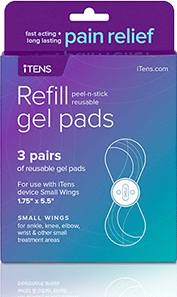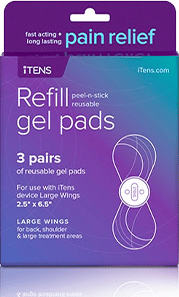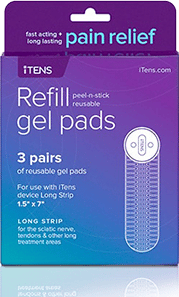
Arthritis is the inflammation of the joints leading to pain and reduced mobility. This chronic pain requires management with effective medicines for arthritis. These include nonsteroidal anti-inflammatory drugs (NSAIDs), disease-modifying anti-rheumatic drugs (DMARDs), and corticosteroids. NSAIDs help reduce pain and inflammation, providing relief to individuals with arthritis. DMARDs work by targeting the underlying disease process, slowing down joint damage. On the other hand, corticosteroids are powerful anti-inflammatory medications that can provide quick relief from arthritis symptoms.
Living with arthritis can be incredibly challenging. The pain, stiffness, and swelling can limit mobility, making it difficult to perform daily tasks. Many individuals with arthritis struggle to find relief and are constantly searching for effective solutions to manage their symptoms. Additionally, the chronic nature of this condition requires ongoing management and treatment to alleviate symptoms and prevent further joint damage. This article will present the most effective medicines for managing arthritis.
Medicines for Arthritis: NSAIDs
Doctors commonly use medicines for arthritis, particularly NSAIDs, to alleviate joint pain and reduce inflammation in arthritis patients. NSAIDs work by inhibiting the production of certain chemicals in the body responsible for causing pain and swelling. While NSAIDs can provide significant relief for individuals with arthritis, people should be aware of their potential adverse effects.
NSAIDs can cause adverse effects like extra weight gain and increased susceptibility to infections. The long-term use of these drugs may also result in damage to the liver and gastrointestinal system. These effects may necessitate the use of proton pump inhibitors to protect the stomach. Therefore, regular blood tests may be required to monitor liver function and assess any potential complications.
Despite these risks, NSAIDs can be a valuable treatment option for managing arthritis symptoms. They can help enhance joint function, reduce pain, and improve the individual’s overall quality of life. However, individuals should discuss the use of NSAIDs with a healthcare professional to evaluate the potential benefits and risks.
Available NSAIDs
- Ibuprofen: reduces inflammation by inhibiting the production of prostaglandins, which are responsible for pain and swelling.
- Naproxen: works similarly to ibuprofen, reducing inflammation and pain by inhibiting prostaglandin production.
- Aspirin: blocks enzymes that produce prostaglandins, reducing pain, inflammation, and fever.
- Diclofenac: acts by inhibiting the enzyme COX, reducing the synthesis of prostaglandins and thus alleviating pain and inflammation.
- Celecoxib: targets the COX-2 enzyme, which is involved in inflammation, providing pain relief and anti-inflammatory effects.
- Meloxicam: inhibits COX-2 enzymes, leading to reduced prostaglandin production and decreased inflammation and pain.
- Ketoprofen: works by inhibiting COX enzymes, reducing prostaglandin synthesis and relieving moderate pain and inflammation.

Medicines for Arthritis: DMARDs
DMARDs are a type of medication commonly used to treat various forms of arthritis. These medicines for arthritis work by targeting the immune system to reduce inflammation, pain, and joint damage. Unlike other pain relievers, DMARDs can slow down or even halt the progression of arthritis. This makes them an important treatment option for individuals suffering from inflammatory arthritis.
One advantage of DMARDs is that they help alleviate the common symptoms associated with arthritis, preserving joint function and mobility. By targeting the underlying cause of inflammation, these medications can effectively reduce joint pain, swelling, and stiffness. Additionally, research has shown that DMARDs decrease the risk of joint damage, ultimately delaying the need for surgical interventions.
While DMARDs can be highly effective in managing arthritis symptoms, they do come with potential side effects. Common side effects include gastrointestinal upset, liver damage, and a slight increase in the risk of infections. However, the benefits of DMARDs in managing arthritis pain outweigh the risk factors and side effects associated with them.
Available DMARDs
Several available DMARDs help manage the symptoms and slow down the progression of arthritis. Healthcare professionals commonly use DMARDs such as methotrexate, sulfasalazine, and leflunomide. Methotrexate, in particular, is often considered the first-line treatment due to its efficacy and safety profile. It works by inhibiting the production of certain white blood cells that contribute to inflammation.
Doctors prescribe sulfasalazine as another DMARD, particularly for individuals with milder forms of inflammatory arthritis. It helps reduce painful joints and swelling by suppressing the immune response. On the other hand, Leflunomide works by blocking certain enzymes involved in the immune response.

Medicines for Arthritis: Corticosteroids
Medical experts may recommend corticosteroids to treat arthritis. These medicines for arthritis reduce inflammation and suppress the immune system, which helps alleviate pain and swelling in the joints. Depending on the severity of the symptoms, corticosteroids can be taken orally or injected directly into the affected joint. Additionally, healthcare professionals sometimes use these medicines to reduce the risks of joint damage, especially in cases of severe arthritis.
One of the main advantages of corticosteroids is their ability to provide quick relief from arthritis symptoms. Unlike other oral medications that may take several weeks to show significant improvements, corticosteroids can start working within hours. This can particularly benefit individuals experiencing acute flare-ups or severe pain.
However, healthcare professionals generally do not recommend long-term use of corticosteroids due to potential side effects. These prescription medications can weaken the immune system, leading to an increased risk of infections. They may also cause weight gain and elevated blood pressure and contribute to the development of osteoporosis. Therefore, people with arthritis should only take corticosteroids as prescribed by their healthcare provider.
Available Corticosteroids
The availability of corticosteroids includes several key options, such as prednisone, prednisolone, dexamethasone, and hydrocortisone. Firstly, doctors often prescribe prednisone in higher oral doses for initial symptom control. Secondly, prednisolone, a closely related medication, is also taken orally and is considered to have similar efficacy as prednisone.
Thirdly, patients can take dexamethasone, another steroid medication, orally, intravenously, or even through injection for relief of severe arthritis symptoms. Lastly, doctors commonly use hydrocortisone, available in various forms such as creams, ointments, and injections, to treat inflamed joints. When used appropriately and under the guidance of a healthcare professional, corticosteroids can provide significant relief from arthritis symptoms.
Conclusion
Medical experts frequently suggest corticosteroids, DMARDs, and NSAIDs as effective medicines for arthritis. Corticosteroids can offer rapid relief from symptoms, but long-term use should be approached with caution due to potential side effects. DMARDs work by specifically targeting the immune system, effectively slowing down arthritis progression and preserving joint function. NSAIDs, in contrast, primarily focus on reducing pain and inflammation caused by arthritis. Individuals need to consult a healthcare professional to determine the most suitable treatment plan.
The available arthritis treatments, including corticosteroids, NSAIDs, and DMARDs, offer various options for symptom relief and disease management. Corticosteroids like prednisone, prednisolone, dexamethasone, and hydrocortisone provide quick relief from inflammation. NSAIDs such as ibuprofen, naproxen, aspirin, diclofenac, celecoxib, meloxicam, and ketoprofen effectively alleviate pain and inflammation. Meanwhile, DMARDs like methotrexate, sulfasalazine, and leflunomide target the immune system to slow down arthritis progression. Overall, proper management of arthritis is possible with the right combination of medications and lifestyle changes.




















